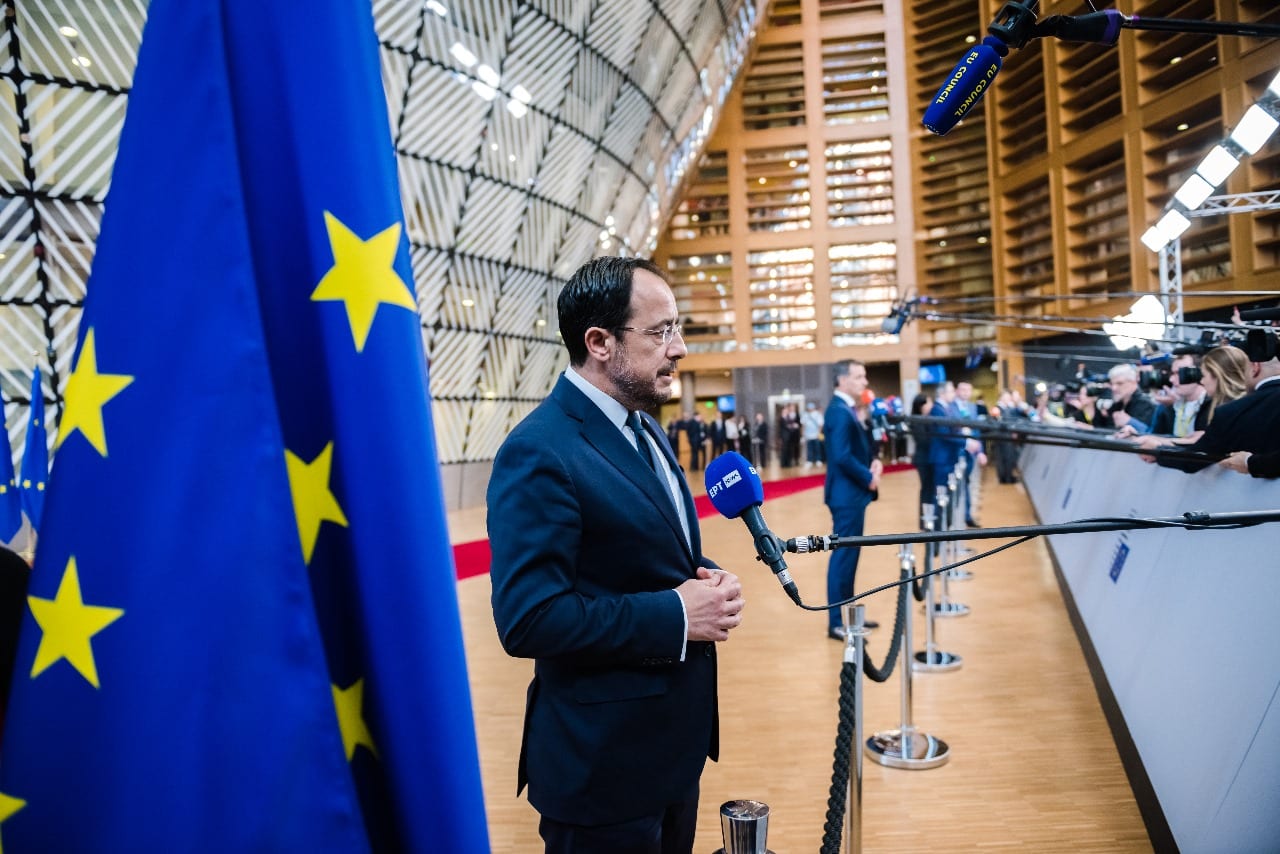The extraordinary European Council in Brussels reaffirmed its full commitment to a comprehensive settlement of the Cyprus problem within the framework of the United Nations and in accordance with the relevant resolutions of the UN Security Council.
President Nikos Christodoulides welcomed the Council’s “strategic discussion on the Euro-Turkey relations.”
“This is something we have been aiming to for a long time,” he said upon arrival in Brussels. “The juncture is significant, given the efforts of the UN Secretary-General to resume talks.”
“Everyone understands the importance of progress on the Cyprus problem for Euro-Turkish relations to move forward.
“Whether Turkey wants it or not, Euro-Turkish relations also go through the Cyprus problem,” Christodoulides said.
Turkey, however, said “it will never accept an approach that links progress in the Turkey-EU relations to the Cyprus problem.”
“The conclusions on Turkey by the extraordinary European Council are yet another example of the EU’s lack of strategic vision on Turkey and the global developments,” a statement released by the country’s foreign ministry said.
“It is necessary to abandon an understanding which reduces these multifaceted relations to the Cyprus problem. Such a mentality cannot make a positive and constructive contribution to the problem, nor to the other regional and global issues.”
Turkey, however, also added in the statement that it remains committed to a future EU membership.
According to government spokesperson Konstantinos Letymbiotis, who made statements after the end of the Council in the early hours of Thursday, “the government has achieved its goal of linking Euro-Turkish relations with the Cyprus problem.”
The European Council also welcomed the appointment of the UN Secretary-General’s personal envoy for Cyprus, Maria Angela Holguin.
“It is important to resume the Cyprus settlement talks and make progress. The EU is ready to play an active role in supporting the UN-led process in that regard,” the President of the European Council said on X.
The message that the EU sent to Turkey is that if the country will engage actively and constructively in the Cyprus talks, there will be corresponding progress in Euro-Turkish relations.
“The European Council sent a powerful message, urging Turkey to operate constructively so that progress on Cyprus can to progress in Euro-Turkish relations,” Letymbiotis said on Trito on Thursday.
He described paragraphs 9 and 10 of the Conclusions, which underscore the EU’s significant emphasis on progress in Cyprus, as important.
Regarding the referral of the strategic discussion of Euro-Turkish relations to the Committee of Permanent Representatives (COREPER), Letymbiotis said that the specific issue was also among the proposals Nicosia made during the Council.
“With this development, all member states will have a say in the progress of Euro-Turkish relations,” he said.
The north’s ‘foreign ministry’ was also critical on the outcome of the discussions at the European Council, directly accusing the EU of being “the main responsible for the current situation of the Cyprus problem.”
“The attitude of the EU, which insists on unfeasible solution proposals, only reinforces the status quo of the island,” a statement released by the north’s ‘foreign ministry’ said.
“It is obvious that it is not possible to get anywhere in Cyprus with solutions that have been proposed for more than half a century and failed. The time has come for a two-state solution in Cyprus.”
Meanwhile, referring to the visit President Nikos Christodoulides and President of the European Commission Ursula von der Leyen will pay to Lebanon on May 2, Letymbiotis stressed that the focus of the discussions will be on the package of additional economic support for Lebanon.
“The details of the support package are still under discussion,” he said. “However, I am confident that by the time of the visit, progress will have been made on this issue so that the President von der Leyen can provide relevant information to the leadership of Lebanon.”







Click here to change your cookie preferences